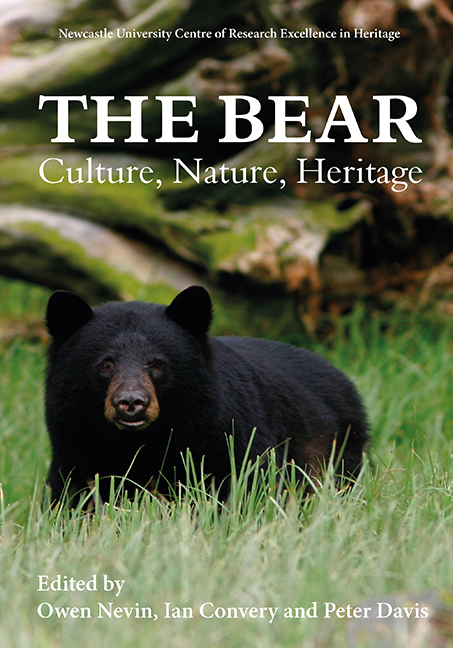Book contents
- Frontmatter
- Contents
- List of Illustrations
- Acknowledgments
- List of Abbreviations
- Foreword: The Bear: A Cultural and Natural Heritage
- Introduction: What is a Bear?
- Bear-People Interactions
- Bears in the Public Gaze
- Bear Biology, Management and Conservation
- Afterword: “It's Me Bear”: Reflections on a Unique Career Working with Bears
- List of Contributors
- Index
- Previous titles
12 - Visitations: The Social and Cultural History of Polar Bear Narratives in Iceland and the North Atlantic
Published online by Cambridge University Press: 21 March 2020
- Frontmatter
- Contents
- List of Illustrations
- Acknowledgments
- List of Abbreviations
- Foreword: The Bear: A Cultural and Natural Heritage
- Introduction: What is a Bear?
- Bear-People Interactions
- Bears in the Public Gaze
- Bear Biology, Management and Conservation
- Afterword: “It's Me Bear”: Reflections on a Unique Career Working with Bears
- List of Contributors
- Index
- Previous titles
Summary
While bears hold a significant place in world views, material and narrative cultures around the world, the polar bear has a particular significance in the folklore of the Arctic and sub-Arctic. It should come as no surprise that this powerful and majestic animal has been respected, feared and even worshipped since the Stone Age, 50,000 years ago.
In the worldview of northern peoples, polar bears have been considered among gods and in some cases the ancestors of men. The Arctic region even draws its name from the Greek root arktikos, or near the bear, referring to the constellation Ursa Major, which, with Ursa Minor, appear in Ancient Greek mythology as the mythological mistress and lovechild of Zeus. Bear constellations are also known in the myths of indigenous groups in North America and Greenland and the Inuit concept of human-animal transformation, often involving a bear or a seal, can also be connected to the bear's role in shamanism (Thompson 1966, 167). In the British Isles, an example may be found in the bear-goddess Artio, derived from the Gaulish word for ‘bear’ and the Proto-Celtic arto, a word connected to the legendary King Arthur (Zimmer 2009). Irish family names, such as McMahon, meaning son of the bear-cub, and Mahoney, grandson of the bear-cub, also express bear-human interconnectedness among the Gaels (Jubainville 1889, 1905). Between these Inuit, Gallic and Scandinavian cultures, centrally located in the North Atlantic, lies an enlightening component in the cultural history of the bear. In this chapter we will explore what the role of the polar bear could be in the social and cultural history of Icelanders by referring to Icelandic narratives of these human-animal relations throughout the North Atlantic. These narratives demonstrate how, in a virtually bear-free country, folklore and narrative carries its inhabitants where their limited experience cannot.
MEDIEVAL SOURCES FOR POLAR BEAR ARRIVALS IN ICELAND
While Iceland is not a natural habitat of bears, its inhabitants’ limited knowledge and experience with them mostly springs from their cultural origins in Scandinavia and the British Isles, as well as from Norse settlements in Greenland.
- Type
- Chapter
- Information
- The Bear: Culture, Nature, Heritage , pp. 147 - 160Publisher: Boydell & BrewerPrint publication year: 2019



